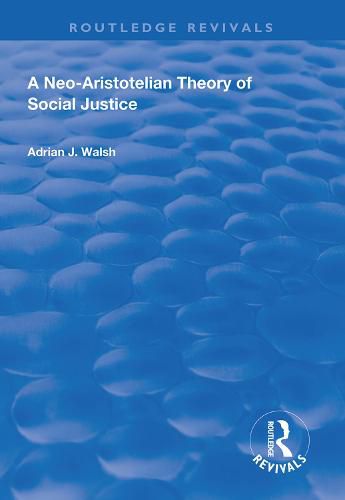Readings Newsletter
Become a Readings Member to make your shopping experience even easier.
Sign in or sign up for free!
You’re not far away from qualifying for FREE standard shipping within Australia
You’ve qualified for FREE standard shipping within Australia
The cart is loading…






First published in 1997. Adrian Walsh develops an original account of social justice using neo-Aristotelian value theory. At the heart of the book is an account of the human good in which human interests are divided into three main categories: the basal interests, the eudaimonian interests and the interests in subjectivity. Subsequently, the distributive goods, to which distributive principles are to apply, are divided into three main spheres; the basal sphere, the eudaimonian sphere and the sphere of subjectivity. While the overall orientation of the project is egalitarian, different distributive principles are applied in each of the three spheres, with the intention ultimately of realising the egalitarian ideal. The main feature of the book is the development of a pluralist egalitarian theory of social justice using a distinctive account of the human good.
$9.00 standard shipping within Australia
FREE standard shipping within Australia for orders over $100.00
Express & International shipping calculated at checkout
First published in 1997. Adrian Walsh develops an original account of social justice using neo-Aristotelian value theory. At the heart of the book is an account of the human good in which human interests are divided into three main categories: the basal interests, the eudaimonian interests and the interests in subjectivity. Subsequently, the distributive goods, to which distributive principles are to apply, are divided into three main spheres; the basal sphere, the eudaimonian sphere and the sphere of subjectivity. While the overall orientation of the project is egalitarian, different distributive principles are applied in each of the three spheres, with the intention ultimately of realising the egalitarian ideal. The main feature of the book is the development of a pluralist egalitarian theory of social justice using a distinctive account of the human good.